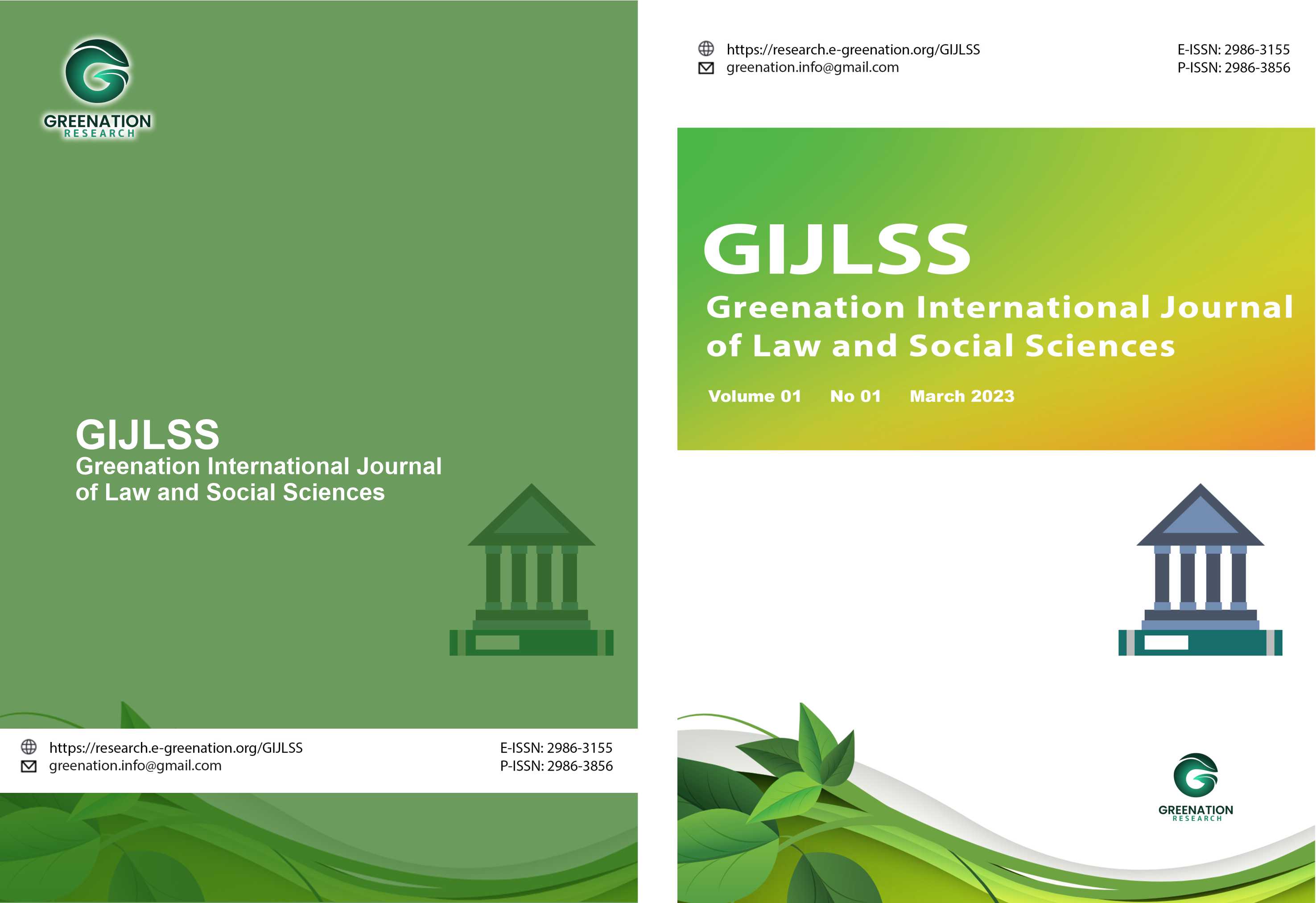The Urgency of Reformulating Digital Policing Regulations Within the Framework of E-Polmas and Police 5.0 to Address the Legal Vacuum Regarding the Use of Artificial Intelligence in the Field of Public Order and Security
DOI:
https://doi.org/10.38035/gijlss.v3i2.488Keywords:
Digital Policing, Artificial Intelligence, E-Polmas, Police 5.0, Regulatory Reformulation, Legal Protection, PolicingAbstract
The development of artificial intelligence (AI) technology has had a significant impact on the transformation of policing models in Indonesia, particularly in the context of public safety and order (kamtibmas). The concepts of Police 5.0 and Electronic Community Policing (E-Polmas) are responses to the challenges of the 5.0 Industrial Revolution era, which demands that the police operate digitally, predictively, and collaboratively with the community. However, the use of AI technology by police institutions lacks a strong legal foundation. This study found that current regulations, such as Law No. 2 of 2002 on the National Police of the Republic of Indonesia, Law No. 27 of 2022 on Personal Data Protection, and the ITE Law, do not specifically address the governance of AI in law enforcement. This legal vacuum raises a number of issues, ranging from unclear accountability, and the risk of algorithmic discrimination, to potential human rights violations. Through a normative legal approach, this study emphasizes the urgency of reformulating digital policing regulations that must include the principles of algorithmic transparency, institutional accountability, human rights protection, and public participation. Besides, it is necessary to design new regulations that are in harmony with international standards, as well as to establish an independent supervisory commission to ensure oversight of the use of technology in police duties. Recommendations are given to lawmakers and the Indonesian National Police to immediately develop an adaptive, ethical, and progressive legal framework to ensure legal protection and the effectiveness of digital policing in the future.
References
Alikhademi, K. D. (2022). A review of predictive policing from the perspective of fairness. Artificial Intelligence and Law, 30, 1-17.
Ambarwati, D. (2022). Urgensi Pembaharuan Hukum di Era “Metaverse” dalam Perspektif Hukum Progresif. Dialektika: Jurnal Ekonomi dan Ilmu Sosial, 7(2), 151-167.
Apriandi, S. &. (2024). Menuju SDM Polri berkualitas di era digital: Pendekatan presisi dan kajian literatur. Innovative: Journal Of Social Science Research, 4(2), 5642-5661.
Berk, R. A. (2021). Artificial intelligence, predictive policing, and risk assessment for law enforcement. Annual Review of Criminology, 4(1), 209-237.
Chafid, A. I. (2024). Profesi dan Profesi Hukum dalam Kerangka Masyarakat Modern di Era Digitalisasi. JURNAL ILMIAH NUSANTARA, 1(4), 399-409.
Darmawan, K. S. (2024). Implementasi Peran Bareskrim Dalam Melindungi Masyarakat Pada Era Society 5.0. Jurnal Salam Presisi, 2(01), 49-61.
Farid, I. R. (2023). Pemanfaatan Artificial Intelligence Dalam Pertahanan Siber. Nusantara: Jurnal Ilmu Pengetahuan Sosial, 10(2), 779-788.
Herdian, A. &. (2025). Analisis Kriminologi Deepfake Melalui Media Sosial Berdasarkan Teori Rational Choice. IKRA-ITH HUMANIORA: Jurnal Sosial dan Humaniora, 9(1), 323-331.
Ismail, M. (2023). Digital Policing; Studi Pemanfaatan Teknologi Dalam Pelaksanaan Tugas Intelijen Kepolisian untuk Mencegah Kejahatan Siber (Cybercrime). Jurnal Ilmu Kepolisian, 17(3), 15-15.
Kushariyadi, K. A. (2024). Artificial Intelligence: Dinamika Perkembangan AI Beserta Penerapannya. Jambi: PT. Sonpedia Publishing Indonesia.
Kusumawardani, A. S. (2021). The Integration of Indonesian National Police Organization Units in Welcoming the Society 5.0. Management Technology and Security International Journal, 693-707.
Mahendra, G. S. (2024). Tren Teknologi AI: Pengantar, Teori, dan Contoh Penerapan Artificial Intelligence di Berbagai Bidang. Jambi: PT. Sonpedia Publishing Indonesia.
Maryani, I. (2025). Artificial intelligence dalam pendidikan: sebuah bunga rampai. Yogyakarta: K-Media.
McDaniel, J. L. (2021). Predictive policing and artificial intelligence. Abingdon: Routledge, Taylor & Francis Group.
Sudaryanto, A. P. (2023). Manajemen sumber daya manusia sektor publik menghadapi kemajuan kecerdasan buatan (artificial intelligence). Musamus Journal of Public Administration, 6(1), 513-521.
Sudira, I. W. (2025). Keadilan Digital: Tantangan Hukum Dalam Era Disrupsi Teknologi. Kertha Widya, 12(2), 35-59.
Sulaiman, S. &. (2023). Hukum Responsif: Hukum sebagai Institusi Sosial Melayani Kebutuhan Sosial dalam Masa Transisi. Ius Civile: Refleksi Penegakan Hukum dan Keadilan, 7(1), 94-103.
Suseno, B. (2016). E-Polmas: Paradigma Baru Pemolisian Masyarakat Era Digital. Jurnal Keamanan Nasional, 2(1), 77-110.
Syauket, A. I. (2024). IMPLEMENTASI KECERDASAN BUATAN DALAM TUGAS KEPOLISIAN. Jurnal Kajian Ilmu Kepolisian dan Anti Korupsi, 1(2), 93-98.
Wibowo, A. W. (2023). Pemolisian digital dengan artificial intelligence. Jambi: PT. RajaGrafindo Persada.
Downloads
Published
How to Cite
Issue
Section
License
Copyright (c) 2025 Cressida Renggi Saputra, Joko Setiono, Indarto Indarto

This work is licensed under a Creative Commons Attribution 4.0 International License.
Copyright :
Authors who publish their manuscripts in this journal agree to the following conditions:
- Copyright in each article belongs to the author.
- The author acknowledges that the Greenation International Journal of Law and Social Sciences (GIJLSS) has the right to be the first to publish under a Creative Commons Attribution 4.0 International license (Attribution 4.0 International CC BY 4.0).
- Authors can submit articles separately, arrange the non-exclusive distribution of manuscripts that have been published in this journal to other versions (for example, sent to the author's institutional repository, publication in a book, etc.), by acknowledging that the manuscript has been published for the first time at GIJLSS.























